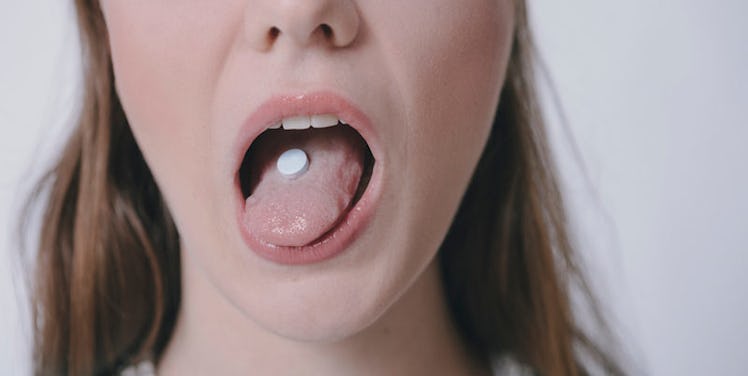
What It's Like Trying To Save Someone With An Opioid Addiction
I have watched the struggle, slow decline and eventual loss of someone with addiction first-hand.
On October 2, 2010, my life was turned upside down when I got the call at work that my uncle Chris had died of a heroin overdose. He was 33 years old, the father of two, a son, a brother, a cousin and a friend. Only 11 years older than me, he was one of the closest people in my life, and he was the center of my family.
He loved playing softball with his friends, Sunday night dinners with our whole family and his two sons more than anything. His laughter was contagious, and through the ins and outs of his struggle with addiction, his smile still lit up the entire room.
I always like to paint the picture of who Chris was to verify that he was, in fact, a real person. He was a person with a heroin addiction, a disease that, until recently, was not considered an ailment. People mistakenly think addiction is a choice; it most certainly is not.
In my uncle's words, "No one wakes up in the morning and decides they want to be a drug addict." The pain I would witness in my uncle's face and the struggle I watched for three years as he was in and out of rehabs, trying desperately to stay sober for his family, is evidence enough to me (as if we should need any) that this was not a life he chose.
Chris' opioid addiction began when he was prescribed Oxycontin, a highly addictive painkiller, after a nearly fatal car accident. Shortly after that, studies began to reveal just how easy it is to get hooked on these pills, and how expensive it is to keep up with the addiction.
And it's not just a "let's get fucked up on a Friday night" kind of a pill. It's a pill you can become immediately and completely addicted to. The withdrawal is so bad, you not only feel like you have the worst flu of your life, but you also feel like you want to crawl out of your own skin.
So, when people can't afford the prescription pills, many of them turn to snorting or shooting up heroin. Heroin is much cheaper than prescription opioids, and when you're in the depths of addiction, this drug is the only alternative.
It has been shown that four out of five people who are addicted to heroin started out misusing prescription painkillers. Four out of five.
Throughout the course of Chris' addiction, we all tried to help him get sober. A month before he died, I even simply came right out and asked him to just stop. At the time, my lack of knowledge made me assume that if I kindly asked him to stop, he would try to end his addiction. That's not how addiction works.
Not to mention, every time he entered a rehab facility, his insurance would run out, leaving him sober for only a short period of time.
It's amazing that only six years after Chris' passing, the government is taking action to end the opioid epidemic in our country. Since 2001, the number of deaths from heroin overdoses has skyrocketed to nearly 12,000 per year. Drug overdoses took almost 50,000 lives in 2014 alone.
If you are dealing with a family member or friend who is struggling with addiction, please remember it is not their choice. It is not the life they want. And it also pains them to know what they are doing to you.
Though you cannot simply ask and expect them to get clean, you can be there to support them when they are ready to get help.